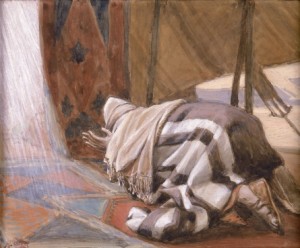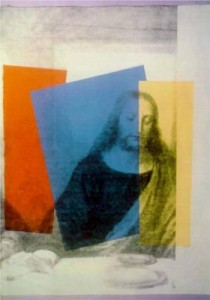Mediating Covenant – Genesis 17
This past Sunday we learned of how God has assigned Jesus as the Mediator between God and man. As mediator Jesus takes what he knows of God’s covenant promises and makes them known to us (see Matthew 11:27). This role as covenant mediator was held for a time by Abraham (Genesis 17) (and others like Noah, Moses and David) but fully owned by Jesus.
So what is this covenant that Abraham mediated between God and his people? You can call it the covenant for the renewal of creation. God promises to renew all of creation through the family of Abraham (Genesis 17:4-8). Abraham was given the sign of entrance into the covenant – the sign of circumcision (Genesis 17:9-14, 22-27). Circumcision pointed to the promise of an offspring who would come to stomp out the head of the serpentine evil that pervades the earth (Genesis 3:15).
Later God instructed his people to make sacrifices through the covenant mediator Moses. Some of those sacrifices, like the peace offerings (Leviticus 3) and Passover (Exodus 12:1-28), were meant to be eaten by the people too.
Jesus came to more fully and finally mediate the same ancient covenant for the renewal of creation (i.e., the Kingdom of God). He was the promised offspring, so the sign of circumcision was no longer needed. Instead, he mediated to us his Father’s wish that we now practice baptism as the entryway into the covenant family. And the night before he was sacrificed, he mediated a new sacrificial meal for us – communion.
Communion is a gift of God to us through the mediator Jesus. And it was mediated to us on this day – Maundy Thursday – some 2000 years ago. It was this very day some two thousand years ago that Jesus communicated to us his Father’s wish that we partake of this meal regularly. We are to do so in order that we remember and commune with the Father through the Son by the power of the Holy Spirit.
“Maundy” comes from the Latin “mandatum novum” or “new commandment.” It has to do with Jesus’ new commandment that we “love one another” in John 13:34, which also took place at his last Passover meal. The love which he commands us to live is baked and aged into the bread and wine which we are to partake of in communion. It is his love, displayed in his crucifixion for us, that is then communicated to us at Communion. It is through receiving his love at his table that we are able to live lives of love like his.
Questions for Conversation
- What is your earliest memory of Easter celebrations?
- Did your family go to Maundy Thursday service? Good Friday? Easter?
- What were those services like?
- When did you first enjoy Communion?
- How are the Father, the Son and the Holy Spirit involved in the celebration of Communion?
- What Scripture passages would you use to explain your answer?



Leave a Reply
Want to join the discussion?Feel free to contribute!